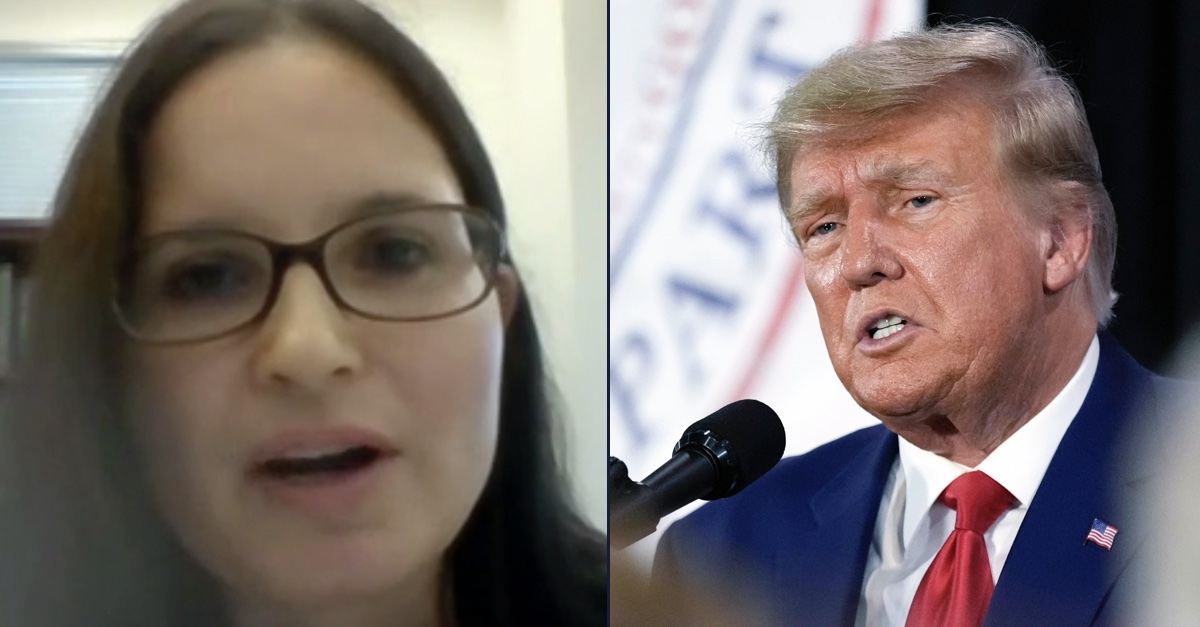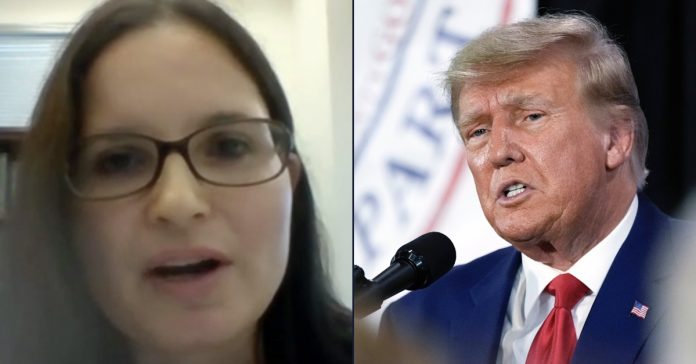
Judge Aileen Cannon (Senate Judiciary Committee via AP), Donald Trump visits Cedar Rapids, Iowa, in July 2023 (AP Photo/Charlie Neibergall, File)
In the aftermath of the Mar-a-Lago trial judge’s ruling against special counsel Jack Smith, lawyers for former President Donald Trump have asked for “attorneys’-eyes-only access” to “all” government filings that seek to delete or substitute classified information from discovery.
Defense attorneys Todd Blanche and Christopher Kise, railing against Smith’s “secret filings,” argued that the “special circumstances” of the case — including Trump’s “prior clearances and access to sensitive information” — should weigh against future ex parte (judge’s eyes only) filings under Classified Information Procedure Act (CIPA) §4.
On Monday, U.S. District Judge Aileen Cannon unsealed documents after Jack Smith warned in ex parte filings that his “forthcoming CIPA Section 4 motion […] will include highly sensitive classified information” from “four separate categories” that ought to be protected from disclosure to the defense, including Trump’s co-defendants, valet Walt Nauta and Mar-a-Lago property manager Carlos De Oliveira.
Smith asserted that “even disclosing” the “number of categories of classified information that the Government seeks to delete from discovery would reveal the contours and extent of the Government’s CIPA Section 4 motion.”
But Cannon rejected that argument, writing that the “bare reference” to “especially sensitive” classified information “without more, is not a basis to deviate from the presumption against ex parte filings in our adversarial system of justice.”
The Trump motion for access to Smith’s CIPA §4 filings highlighted that Cannon has discretion (“may permit”) Smith to submit filings for her eyes only, but she may also take an alternative path of granting Trump defense lawyers who have the appropriate security clearances “attorneys’-eyes-only access to all CIPA § 4 submissions,” and ordering redacted versions of those Smith submissions to be filed on the “public docket so that the public and the press can access the unclassified portions of the documents.”
In other words, Trump lawyers want to know what Smith seeks deleted from shareable discovery and they want the public to have at least a glimpse of what the government is doing.
In arguing against keeping CIPA § 4 filings from the defense, Trump attorneys appealed to the “special circumstances” of the case that “may justify requiring that CIPA § 4 motions be litigated in an adversarial setting.”
Trump, who is charged with willful retention of classified information and a conspiracy to obstruct the recovery of those documents, was the “central classification authority in the United States” for four years, the lawyers argued.
“This case presents such circumstances. For four years, President Trump acted on a public mandate to access the nation’s most sensitive secrets for the benefit of the country. He was the central classification authority in the United States,” the Trump motion said. “Today, he is the leading candidate to assume that role again in 2025, despite politically motivated efforts by the Biden Administration to remove him from the election—including this case.”
The defense lawyers urged Cannon not to take Smith’s “word for it” when he warns of document sensitivity.
“Further, in light of the Office’s record of misrepresentations and abuses of sealing and ex parte processes in this case, the Court cannot simply take the prosecutors’ word for it,” the motion said.
After all, maybe the Intelligence Community is pressuring Smith, the lawyers stated.
“The salient point is that prosecutors often contend — inaccurately, and perhaps based on improper pressure from Intelligence Community components with no regard for criminal defendants’ rights and the public’s access rights — that materials subject to a CIPA § 4 motion are too sensitive to be disclosed to the defense,” Trump lawyers added later.
Encouraging Cannon to lean against future “secret filings” and to view the special counsel’s requests with “skepticism,” Trump’s team said Smith should especially not be allowed to “seal unclassified portions of the filing such as introductory language, unclassified arguments, background of affiants, or citations to legal authority.”
Have a tip we should know? [email protected]

